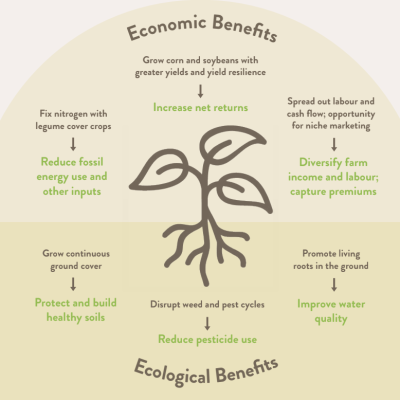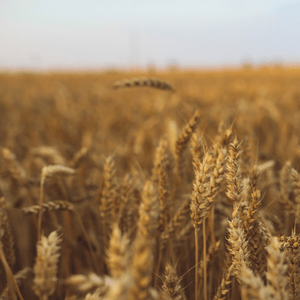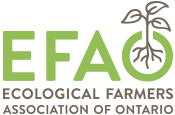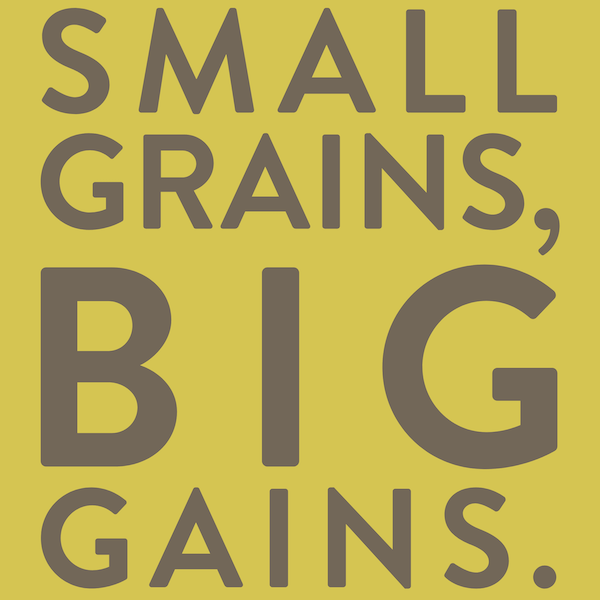SMALL GRAINS
Want to grow small grains or expand your small grains production? EFAO’s Small Grains Program is for you!

As many farmers already know, small grains can offer big gains! But, trying something new on the farm comes with some uncertainty and risk. Recognizing the on-farm benefits and ecosystem services that diversified rotations provide, EFAO’s Small Grains Program addresses this risk by offsetting some of the cost of growing new acres of small grains. The Small Grains Program is open to farmers across Ontario, regardless of your agronomic practices.
The final intake of the Small Grains Program is now closed – thank you for all your enthusiasm about this program. Stay tuned to find out what’s next.
Find out more about eligibility, program requirements, and benefits below.
Click here to learn about reverse auctions and bidding.
EFAO will open future intakes of the Small Grains Program as follows:
- December 2022 for spring 2023 planting of small grains (harvested summer 2023); – closed
- July 2023 for fall 2023 planting of small grains (harvested summer 2024); – closed
- December 2023 for spring 2024 planting of small grains (harvested summer 2024); – closed
- July 2024 for fall 2024 planting of small grains (harvested summer 2025); – closed
- December 2024 for spring 2025 planting of small grains (harvested summer 2025); – closed
- July 2025 for fall 2025 planting of small grains (harvested summer 2026); – closed
- December 2025 for spring 2026 planting of small grains (harvested summer 2026). – closed

Funding
Currently closed.
On-Farm Wheat, Oat and Potato Breeding
Get involved with participatory plant breeding for grains.
Small Grains Program
Who can apply for the program?
Program Eligibility
The program is open to farmers across Ontario who are either:
a) New to small grains – growing small grains for the first time;
b) Returning to small grains – have grown small grains in the past, but not in the last three years; or
c) Expanding acres of small grains – have grown small grains in the last three years, and will be expanding small grains acres to land that has not had small grains grown on it for the last three years.
What do I need to do to receive funding?
Program Requirements
To qualify for the payment, eligible farmers must:
- Plant and harvest a small grain. For the purposes of this program, small grains include wheat, spelt, barley, rye, oats, triticale, buckwheat, amaranth, and quinoa.
- Plant a legume cover crop or cover crop mix with legume species that is seeded with the small grain in the same field; or planted in the same field after the small grain is harvested. The cover crop can be seeded as preferred (i.e. inter-, under-, broadcast or direct seeded).
What benefits do I receive as part of my participation?
Program Benefits
Funded participants will receive:
- Payment based on their bid
- Access to agronomic support, educational opportunities, and peer-to-peer mentorship
- Opportunity for baseline soil testing
How do I apply?
Application and Bid Submission
To apply to the Program, eligible farmers must:
- Submit their email address to receive an application form
- Submit bids to EFAO indicating the funding they require to plant a spring small grain followed by a legume cover crop on up to 200 acres
- Indicate their experience with small grains in order to be sorted into one of two equally funded experience groups: a) new to small grains; b) & c) farmers returning to or expanding acres of small grains
How are the program participants selected?
Funding Decisions
The most competitive bids will be approved and funded with each experience group separately. Bids will be ranked on a cost per acre basis and funded starting from the lowest bid per acre, then the second lowest, and so on, until the available funds have been allocated. Applications will be evaluated solely on the per acre cost (the submitted bids).
There’s more!
Looking forward to future intakes? Beginning in July 2023, EFAO’s Small Grains Program will open for intakes in both July and December to offer funding for both fall- and spring-planted small grains. See the full list of confirmed intake periods at the top of this page.
Want to be involved in small grains events and be the first to know about future Small Grains Program intakes? We encourage you to join the Small Grains Network, a free program of educational, agronomic and community resources around small grains production and marketing.
What is the Small Grains Network?
At the heart of the program is a Small Grains Network to support beginner to advanced small grain growers across Ontario, with monthly meet-ups, E-newsletters, and community-building around growing small grains, including:
- Monthly shared learning calls on small grains production and marketing topic
- Monthly e-newsletters with resources on small grains and diverse rotations
- Field days on small grains production and diverse rotations
- Opportunity to attend the annual small grains conferences in the midwest US
- Connection to experienced small grain growers and a community of other farmers interested in small grains
- Opportunities for experienced growers to be paid for mentorship
- Opportunities to conduct farmer-led research on small-grains production
What other resources exist for farmers growing small grains?
- EFAO’s Small Grains E-newsletter | Sign-up here >
- Practical Farmers of Iowa | Rotationally Raised Video Series >
- OMAFRA Cost of Production | Pub 60 >
- The Bauta Family Initiative on Canadian Seed Security | Participatory Plant Breeding (PPB) program >
- Government of Saskatchewan | Principles and Practices of Crop Rotation >
- University of Manitoba | Fertilizer Replacement Value of Legume Green Manure Crops >
- University of Manitoba | Seeded Legume Cover Crops for Late Season Production >
MORE INFORMATION
Please contact Jackie Clark, jackie@efao.ca, to find out how you can receive payment and support to add a small grain to your rotation.
Funding
This project is funded and supported by the Weston Family Foundation’s Soil Health Initiative.



